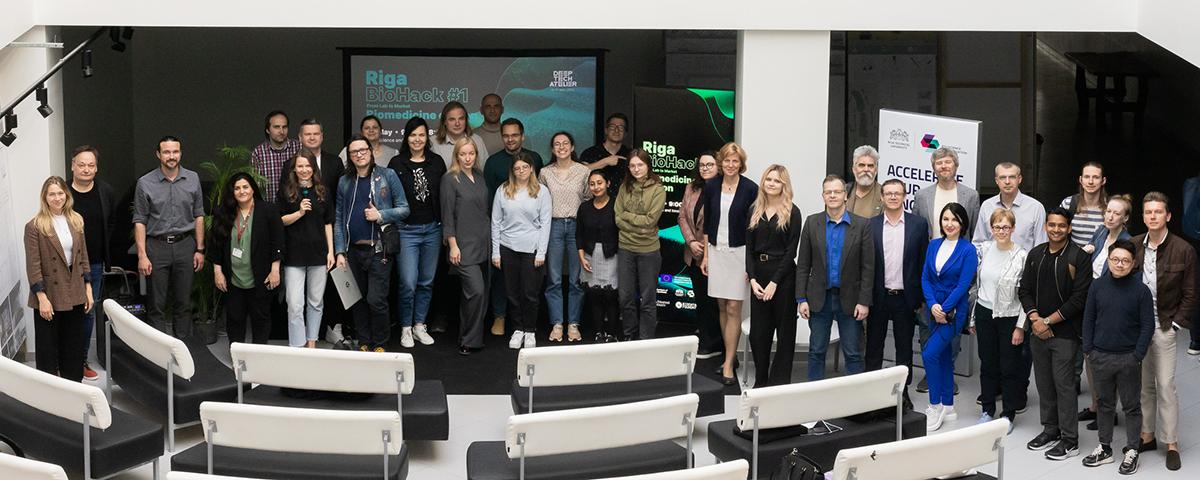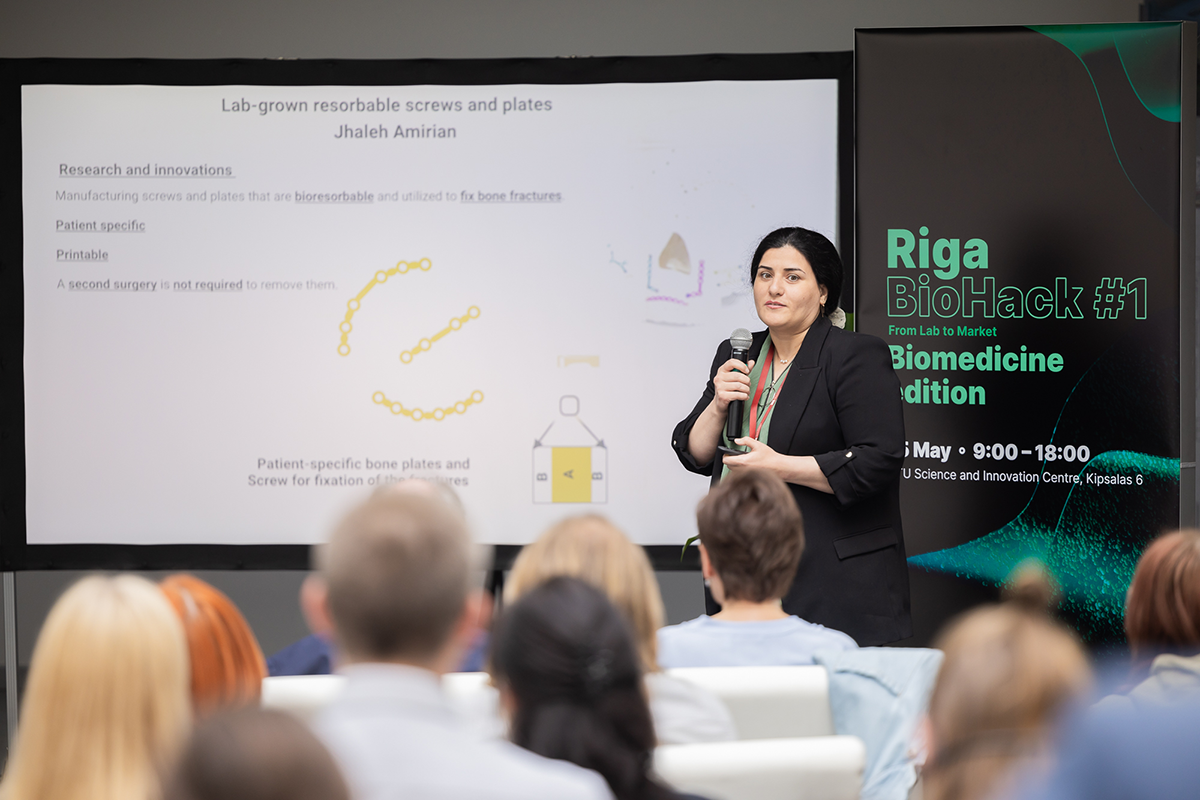RSU researchers participated in Riga Biohack 2024 hackathon
On 15 May, the first Riga Biohack hackathon took place as part of Deep Tech Atelier, the largest deep tech conference in the Baltics. The hackathon is an intensive event to develop start-ups and spin-off companies, aimed at jointly finding solutions to problems and promoting the further growth of projects.
Riga Biohack brought together an international group of researchers, industry representatives, students, investors, and successful entrepreneurs to collaboratively develop innovations in biomedicine and biotechnology. The first hackathon dedicated to biotechnology in Riga was held at the Riga Technical University (RTU) Institute of Architecture and Design.

The 2024 hackathon participants
At the beginning of the event, researchers from leading research institutions in Latvia presented their projects. Participants had the opportunity to get to know two of them better and choose which project to work on for the rest of the day. The hackathon gave researchers the opportunity to test the commercial viability of their projects and evaluate the application and the field and market potential of their research results together with experienced mentors. During the event, participants could enhance their knowledge by listening to expert lectures on topics such as R&D strategy, fundraising opportunities, and success stories of biotechnology entrepreneurs.
Several representatives from Rīga Stradiņš University (RSU) also participated in Riga Biohack with their projects, among them Dr. Jhaleh Amirian and Prof. Zanda Daneberga, MD, PhD. ‘Participating in the biohackathon was an unusual but valuable experience. We had the opportunity to hear different points of view and evaluate the possibilities for how to develop our research further. I really appreciated the creative atmosphere and the opportunity to collaborate with professionals who are passionate about innovation and have expertise in biotechnology,’ said Prof. Daneberga.
Prof. Daneberga is the Deputy Director in Molecular Oncology Matters at the Institute of Oncology and Molecular Genetics. She is carrying out her research within the framework of the National Research Programme in biomedicine, medical technologies, and pharmacy (BioMedPharm, No. VPP-EM-BIOMEDICINA-2022/1-0001).

At the end of the event, researchers presented their work to a carefully selected jury. The developers of the highest-rated projects were given the opportunity to later present at the Deep Tech Atelier session “Science meets business”. Among them was Dr. Amirian (pictured), a leading visiting researcher at RSU and a researcher at the Baltic Biomaterials Centre of Excellence, who introduced the audience to her research on lab-grown resorbable screws and plates. Dr. Amirian's research offers an innovative method to address clinical complications related to the use of screws and plates after fractures.
Overall, the event was valuable as it allowed participants from various fields to see the challenges faced by other biotechnology developers. Participants could find solutions together by listening to different points of view that they might not have considered before. The event provided all participants with an opportunity for everyone to get involved, from representatives of innovation centres at leading universities and biotech investors, to law students interested in the legal aspects of patenting new technologies.
Riga Biohack provided a platform for participants to exchange ideas and experiences, meet like-minded individuals, and connect with potential investors, offering invaluable support for any project. The event’s productive atmosphere showed that Latvia has a significant potential to develop in the field of biotechnology, if it is done in a cooperative and mutually supportive way.
The project received funding from the European Union's Horizon 2020 research and innovation programme (No. 857287).
Related news
 Time capsule laid at ceremony for construction of new RSU sports complexFor Students, Consolidation, For RSU Employees, Internal consolidation, Development
Time capsule laid at ceremony for construction of new RSU sports complexFor Students, Consolidation, For RSU Employees, Internal consolidation, Development


